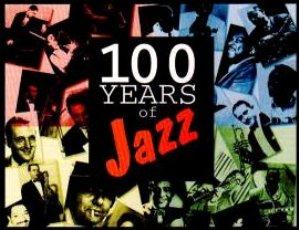100 Years of Jazz - Disc 08: Hard Bop - Soul Jazz (1999)
100 Years of Jazz - Disc 08: Hard Bop - Soul Jazz (1999)

1. Horace Silver Sextet – Hear Me Talkin' to Ya (09:10) 2. Wilbur Harden Quintet – Wells Fargo (07:23) 3. Art Blakey & The Jazz Messengers – Moanin' (12:42) 4. Freddie Hubbard Quintet – Joy Springs (06:52) 5. Wes Montgomery Quartet – Impressions (10:02) 6. McCoy Tyner Quintet – Traces (08:35) 7. Kenny Burrell Trio – Blues Rag (04:05) 8. Art Pepper Quartet – Straight Life (06:57)
Although some history books claim that Hard Bop arose as a reaction to the softer sounds featured in cool jazz, it was actually an extension of bop that largely ignored West Coast jazz. The main differences between hard bop and bop are that the melodies tend to be simpler and often more "soulful"; the rhythm section is usually looser, with the bassist not as tightly confined to playing four-beats-to-the-bar as in bop; a gospel influence is felt in some of the music; and quite often, the saxophonists and pianists sound as if they were quite familiar with early rhythm & blues. Since the prime time period of hard bop (1955-70) was a decade later than bop, these differences were a logical evolution and one can think of hard bop as bop of the '50s and '60s. By the second half of the 1960s, the influence of the avant garde was being felt and some of the more adventurous performances of the hard bop stylists (such as Jackie McLean and Lee Morgan) fell somewhere between the two styles. With the rise of fusion and the sale of Blue Note (hard bop's top label) in the late '60s, the style fell on hard times although it was revived to a certain extent in the 1980s. Much of the music performed by the so-called Young Lions during the latter decade (due to other influences altering their style) was considered modern mainstream, although some groups (such as the Harper Brothers and T.S. Monk's sextet) have kept the 1960s' idiom alive. ---allmusic.com
Soul-Jazz, which was the most popular jazz style of the 1960s, differs from bebop and hard bop (from which it originally developed) in that the emphasis is on the rhythmic groove. Although soloists follow the chords as in bop, the basslines (often played by an organist if not a string bassist) dance rather than stick strictly to a four-to-the bar walking pattern. The musicians build their accompaniment around the bassline and, although there are often strong melodies, it is the catchiness of the groove and the amount of heat generated by the soloists that determine whether the performance is successful. Soul-jazz's roots trace back to pianist Horace Silver, whose funky style infused bop with the influence of church and gospel music, along with the blues. Other pianists who followed and used similar approaches were Bobby Timmons, Junior Mance, Les McCann, Gene Harris (with his Three Sounds), and Ramsey Lewis. With the emergence of organist Jimmy Smith in 1956 (who has dominated his instrument ever since), soul-jazz organ combos (usually also including a tenor, guitarist, drummer, and an occasional bassist) caught on, and soulful players became stars, including Brother Jack McDuff, Shirley Scott, Jimmy McGriff, Charles Earland, and Richard "Groove" Holmes, along with such other musicians as guitarists Grant Green, George Benson and Kenny Burrell; tenors Stanley Turrentine, Willis "Gator" Jackson, Eddie "Lockjaw" Davis, David "Fathead" Newman, Gene "Jug" Ammons, Houston Person, Jimmy Forrest, King Curtis, Red Holloway, and Eddie Harris; and altoist Hank Crawford. Despite its eclipse by fusion and synthesizers in the 1970s, soul-jazz has stayed alive and made a healthy comeback in recent years. ---allmusic.com
download (mp3 @320 kbs):
yandex mediafire ulozto gett bayfiles








